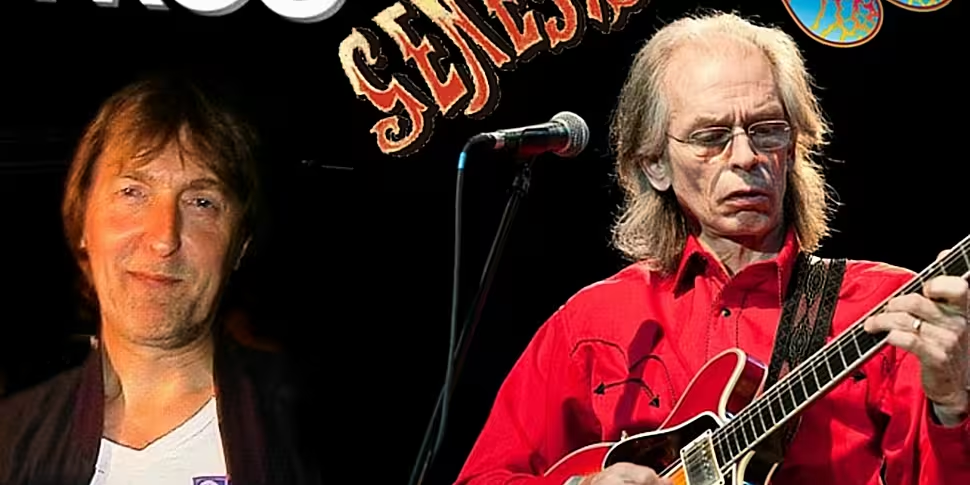If you didn't get a chance to tune in to The Tom Dunne Show Prog-Rock Special, catch up on the highlights right here!
Think Genesis, Pink Floyd, Yes, Focus, Emerson Lake and Palmer, King Crimson and Jethro Tull to name but a few.
This is a genre defined by the desire of musicians in the late 60's and early 70's to elevate rock to a new level, to give it more weight, more credibility, and break the limits of music as it was known.
Blending classical, jazz, psychedelic, and rock, orchestras, off-kilter structures, and some humor for good measure- the musicians behind this development were the avant-garde of music. But for better... or for worse?
First up, Tom was joined by the editor of Prog Magazine Jerry Ewing, to paint the picture of prog-rock as it happened. The British print publication prides itself on maintaining a healthy circulation in recent years, no doubt on account of the wide prog-rock fan base that still remains.
Drawing from an analogy made by Ian Anderson from Jethro Tull, Ewing described prog-rock as "music for people who get bored easily".
Ewing also spoke on the influence that prog-rock has had on music right up until today, saying: "We consider Radiohead a modern prog-rock band, in the same was as we look at Muse and Mogwai as modern progressive artists".
Next up, legendary virtuoso guitarist of prog-rock band 'Yes' - Steve Howe joined Tom to talk about his part in defining and developing the genre over a career spanning more than 50 years. They may often be slammed by critics as symphonic self-indulgence, but 'Yes' are still going strong, and will embark on another tour of America this summer.
Howe discussed the idea that punk destroyed prog, and how the band responded:
"The NME - after calling us the people's band in 1973, called us rock dinosaurs in 1978, so you can see where it was going. Then again, we came up with 'Drama', which is one of the albums we're going to be playing on this tour, and that shows you that we couldn't ignore that there was an edge in the music - and that album is kind of nicely edgy".
Lastly, Tom welcomed founding member of 'Genesis' - Anthony Phillips onto the programme. Phillips played guitar for the band between 1967 and 1970, and is considered a to have been a substantial influence on the direction and style of the group in it's formative years.
Phillips discussed Peter Gabriel's decision to add an aesthetic element to the performances, in an effort to open the music up to a wider audience.
On Gabriel's flower costume, he revealed that "[Peter] was actually very nervous on stage. It's not the story that's known by most people, is that Peter's a very shy, lovely guy - but very shy off stage - and actually on stage he struggled to start with. And these stories he started, or rather this act he created and grew into was actually born from the fact that Mike Rutherford and I were playing these two twelve-string guitars which we could never get in tune, so somebody had to do something whilst we were tuning up".
Since the inception of the Prog-Rock Special - and throughout the programme - listeners from around the country got in touch with us to give their two pence on what they thought about it all. Some of you suggested songs and bands that you'd love to hear - others questioned, laughed, and joked at the idea that we would spend a whole show on the topic.
Prog-rock... The Marmite of the music world, loved and mocked in equal measure... but there is certainly plenty to be said about this divisive musical style. It consumed a considerable portion of the masses throughout the 70's - both sides of the Atlantic - and has had a lasting effect on the landscape of music ever since.
If you'd like to get in touch with the show, e-mail tom@newstalk.com, tweet to @tomhappens, hashtag #TomNT or send a text to 53106 during the programme at the cost of 30 cents.
The Tom Dunne Show - Monday to Thursday from 10pm to midnight and Sundays from 9 - 11pm









